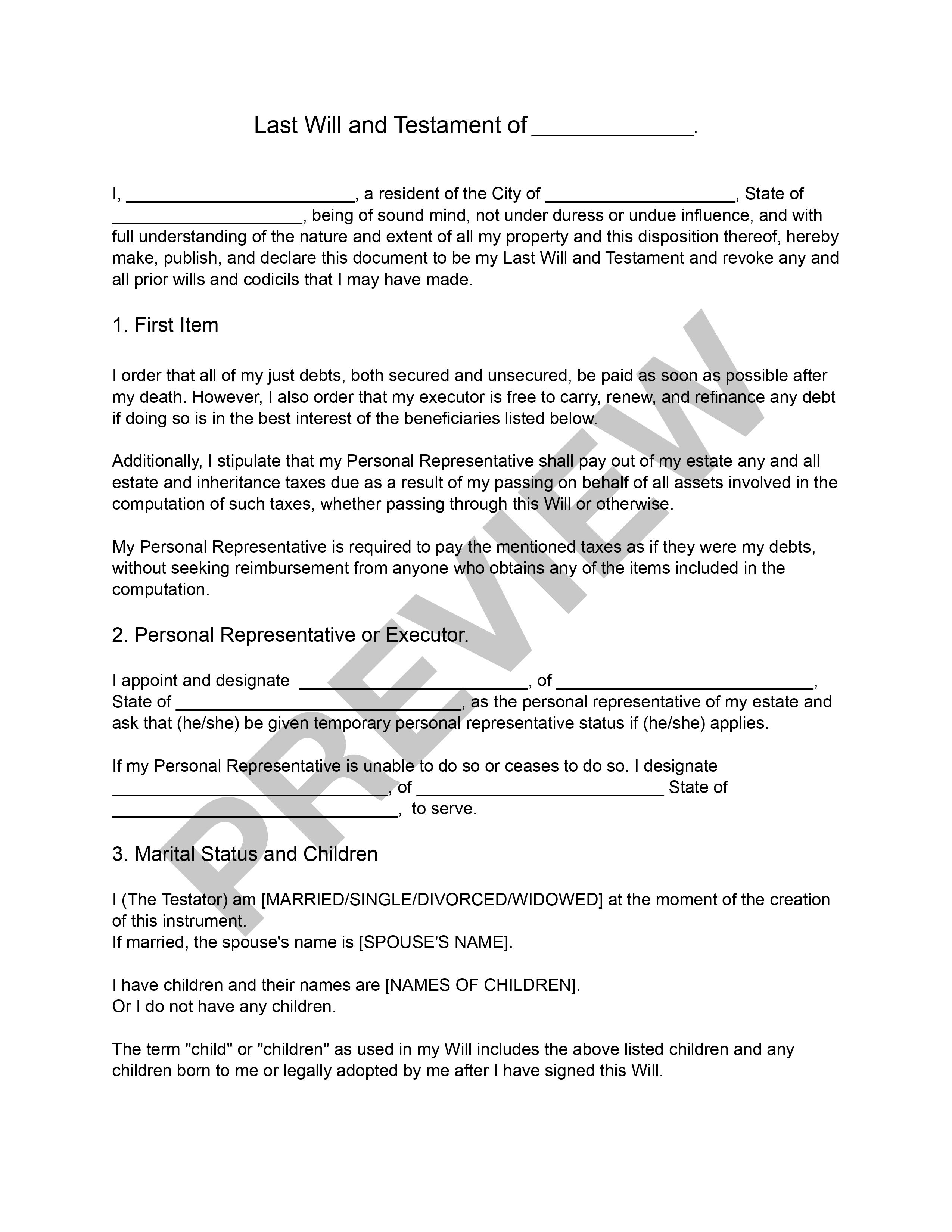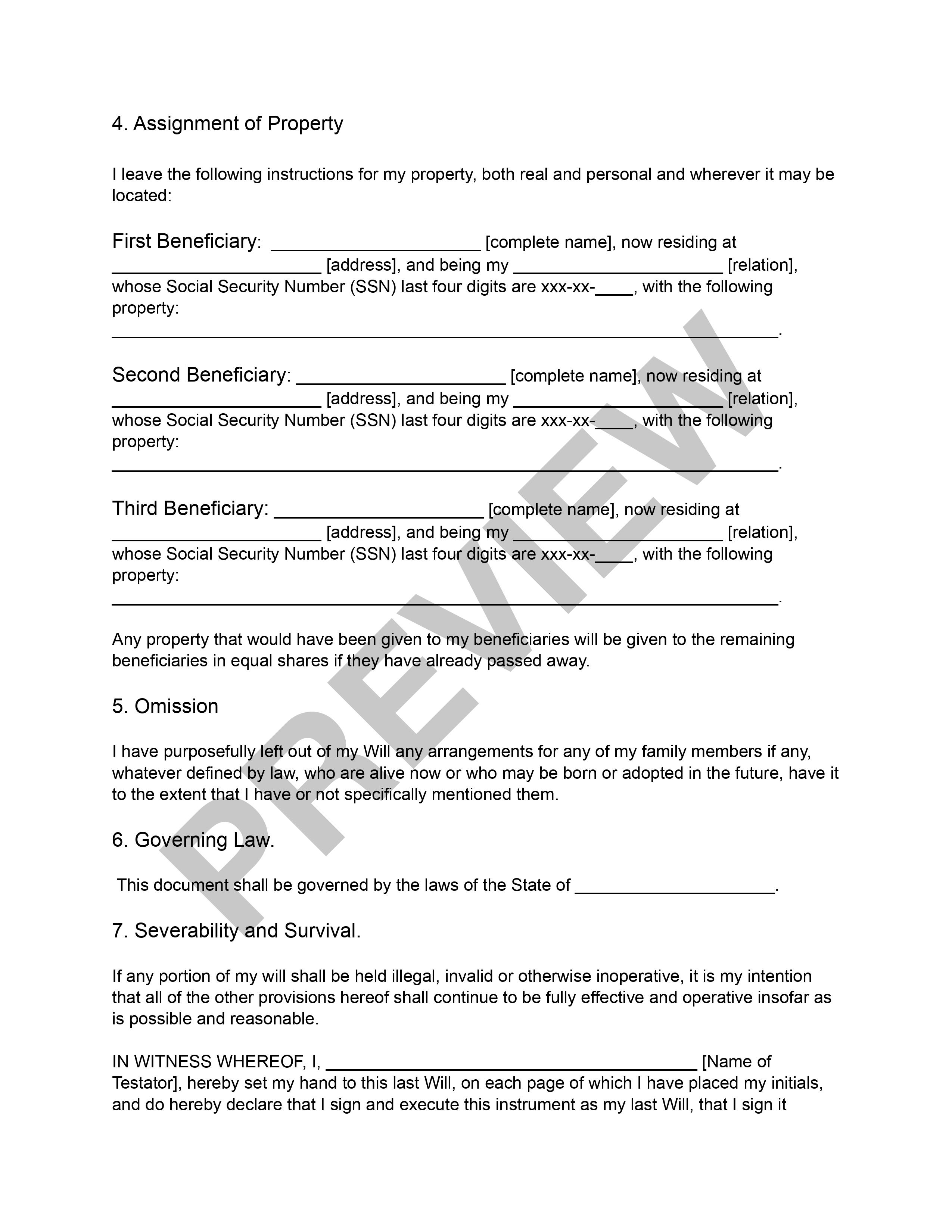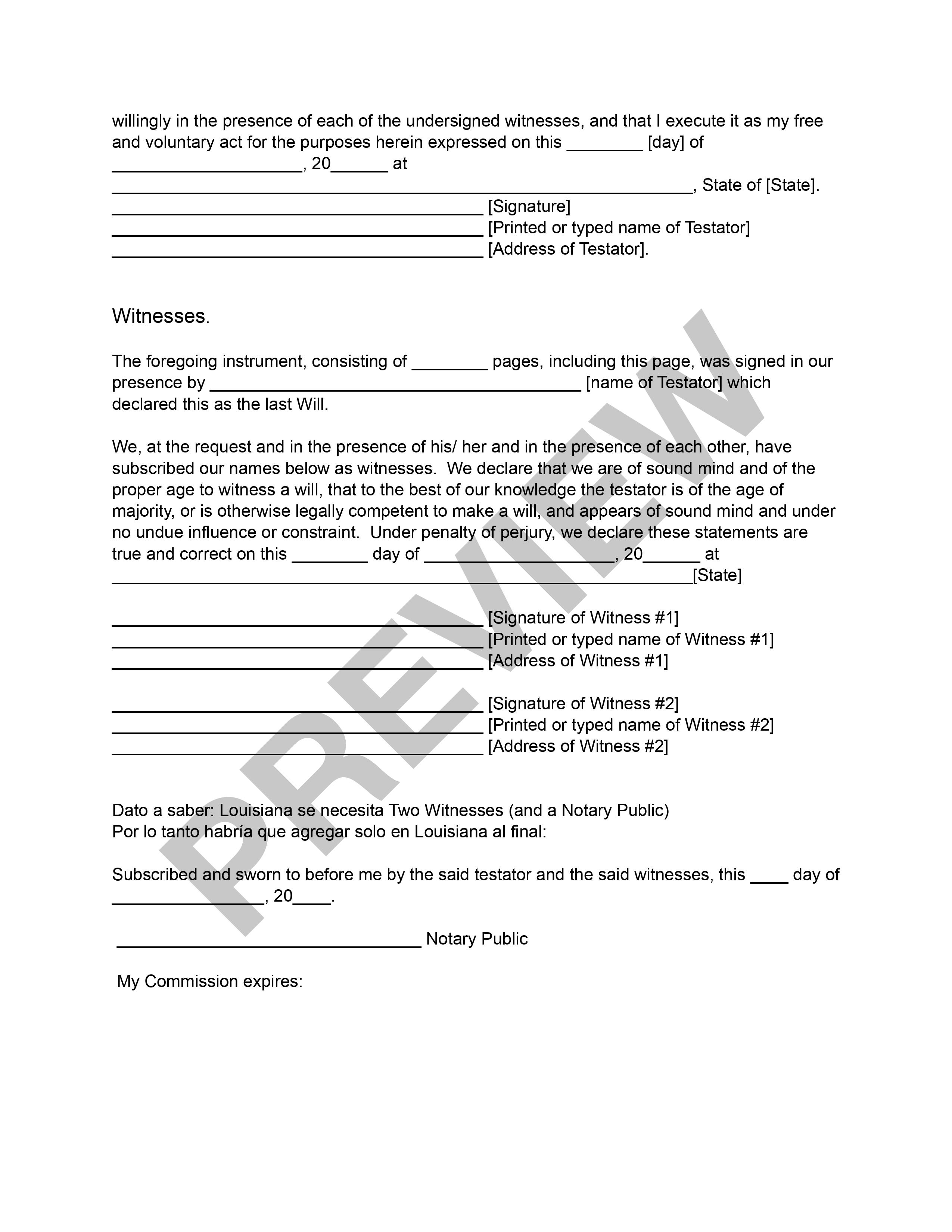Last Will & Testament
Get Started
Testator's Family
Guardian
Second Guardian
Successor Executor
First Witness (You can fill later)
Second Witness (You can fill later)
Third Witness (You can fill later)
Last Will & Testament Date
Frequently Asked Questions
The state to choose on a last will is typically the state where the testator is domiciled or permanently residing at the time of their death. Domicile refers to the place where the person has their permanent home and intends to return to if they are temporarily absent.
A last will and testament is a legal document that outlines a person's wishes for the distribution of their assets and the care of any dependents after their death. It specifies who will inherit the individual's property, money, and other assets, as well as who will be responsible for carrying out their final wishes. A well-crafted last will and testament can help ensure that an individual's assets are distributed according to their wishes, rather than being subject to the default rules of intestacy.
A testator is a person who makes a will or a testament, which is a legal document that outlines how they want their property and assets to be distributed after their death.
An executor is a person named in a will or appointed by a court to manage the estate of a deceased person. The executor is responsible for ensuring that the terms of the will are carried out and that the assets of the estate are distributed to the beneficiaries as outlined in the will.
It is important to choose an executor who is trustworthy and responsible, as they will be managing the assets of the estate and ensuring that the wishes of the testator are carried out.
Debts and expenses on a last will refer to any financial obligations or costs that need to be paid from the estate before any assets are distributed to the beneficiaries.
Estate and gifts on a last will refer to the assets or percentage that are being distributed to beneficiaries after all debts, expenses, and taxes owed by the estate have been paid.
The number of witnesses required on a last will depends on the laws of the state or jurisdiction where the will is being executed. In most states, at least two witnesses are required to witness the testator's signature on the will in order for it to be considered valid. Colorado is the only exception where can only be signed by a Notary Public without any witnesses.
The witnesses must be disinterested parties, meaning they cannot be named as beneficiaries in the will or have any financial interest in the estate. Additionally, the witnesses must be of legal age and have the mental capacity to understand the nature and significance of witnessing the will.
An additional clause on a last will refers to any provisions or instructions that are added to the will to clarify, modify, or supplement its existing terms. For example: a clause specifies how any remaining assets in the estate should be distributed after all debts, expenses, and other bequests have been fulfilled.
It is recommended to regularly review and update the will to reflect any changes in the testator's circumstances or wishes.





